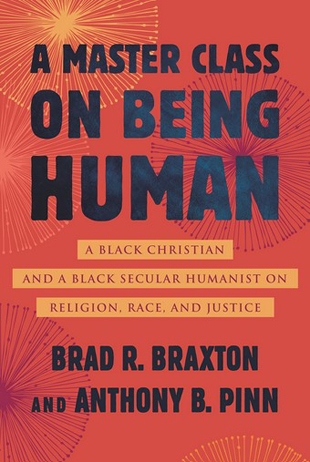This book should help many people find fresh ways to navigate issues of disagreement with others. The authors demonstrate that, if two people are willing to listen and admit their assumptions, as well as what they need to learn from others, there are ways out of our polarities.
Brad Braxton, a Black Christian, is president of Chicago Theological Seminary. Anthony Pinn, also Black, is a secular humanist, and a distinguished professor of humanities at Rice University. Pinn differs a great deal from Braxton on matters of faith, activism, and politics. They engaged in an extended email conversation throughout the years of the pandemic, and its fruits are presented here.
Their topics include the role of religion in public life; the loss of faith among people, especially Christians; the future of Black Lives Matter; race and justice; and trying to answer the question, “Is God good?”
The sense that they are learning from each other comes through clearly, despite their differences. Most of the book is written in back-and-forth conversations. At times they say to each other: “This is very unusual but inspired.” Or, “This is really interesting!” But also, “There’s a problem here.” And, “I disagree.”
But they keep at it. They keep talking and listening, and they find much to agree on. They also demonstrate how well-considered adults can come to new opinions after reasoned conversation.
Such skills are sorely lacking today, which brings us to the title of the book: It’s not meant to be presumptuous — as if these two authors hold the key to what it means to be human — but rather, it refers to how basic human skills such as a willingness to listen and learn from those who are different from us seem to be vanishing. That’s frightening.
